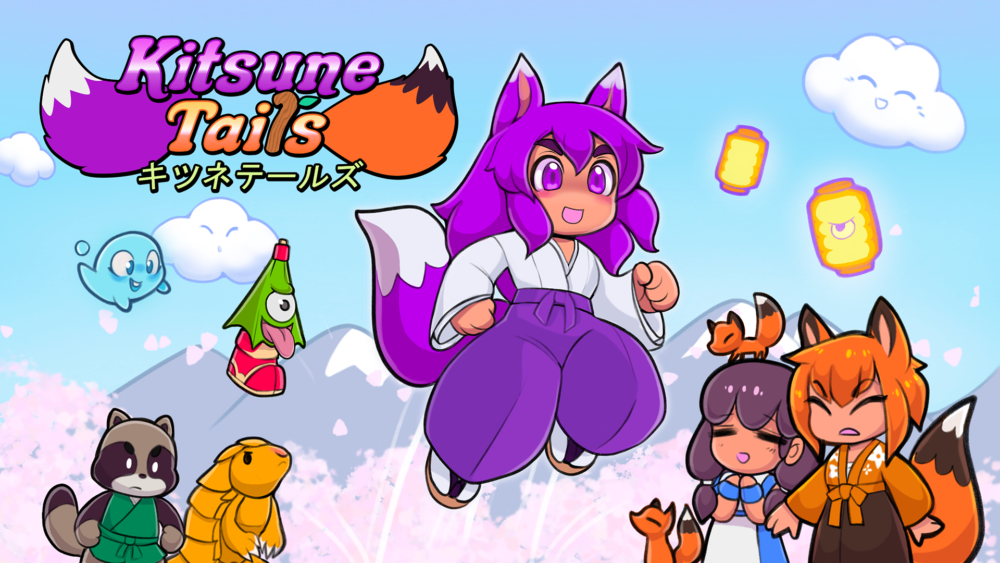
Confetti’s Cozy Corner: Interview with Kitsune Games
Kistune Tails jumped into our hearts in Summer 2024, as we went on a heartfelt journey with Yuzu, a female kitsune. During her hero’s journey, we laughed, cried, and celebrated as Yuzu discovers herself while healing past relationships. This cozy queer platformer, inspired by Japanese mythology, took home the win for Best LGBTQ+ Indie Game at the 2025 Gayming Awards, and it was well deserved. Indie games, in my opinion, have some of the best queer representation in the games industry, and Kitsune Tails stands amongst them.
I was honored to get the opportunity to not only present the Best LGBTQ+ Indie Game Award (my favorite category!) at the 2025 Gayming Awards, but also to get to interview Eniko from Kitsune Games and Cade from MidBoss.
I hope their story will not only inspire queer talent who are on their journeys of making it in the games industry, but also serve as an example of great representation!

MiladyConfetti: Kitsune Games, congratulations on your Gayming Award for Best LGBTQ+ Indie Game! What does this win mean for you and your team?
Eniko: Our team is super happy with the recognition of our hard work! Kitsune Tails had been nominated before, but this is the first proper win we’ve had. We all poured a lot of love into the game, so it feels amazing to win this award.
Cade: It gave me immense pleasure to see this game receive this stellar amount of recognition I know it deserved. I know it was a long time coming to develop (5+ years) and was made with a lot of effort by a lot of people during that time, but having it receive an award made it all worth it.
What inspired you to create Kitsune Tails?
Eniko: We came up with the concept for Kitsune Tails in the spring of 2020, after we’d made Super Bernie World. We decided we wanted to build on that momentum with another platformer, and given the state of the world at that time, we wanted to have a queer story centering queer joy. Something that would make people feel happy during a tough time.
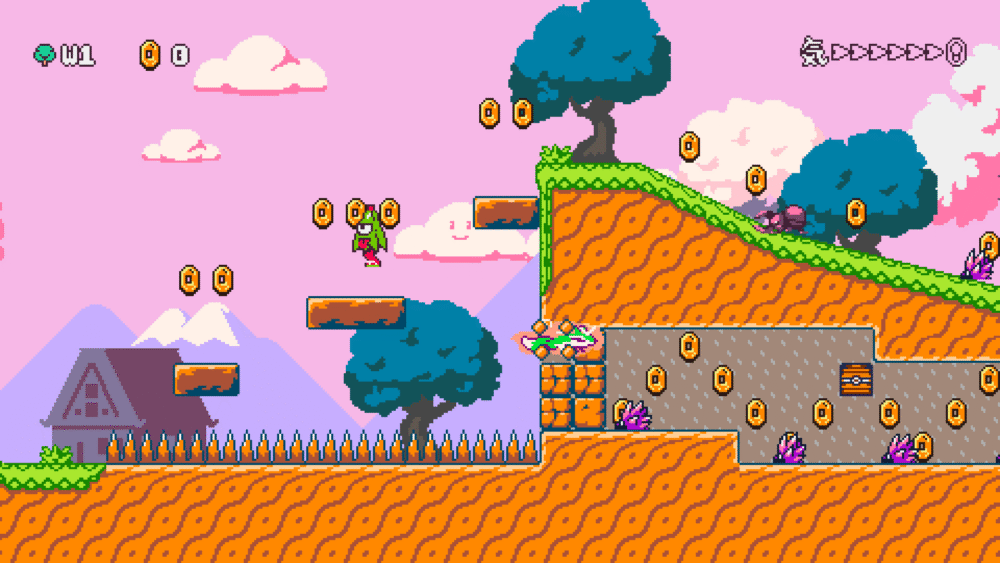
What is your favorite part of being an indie developer?
Eniko: I think my favorite part is when we get to connect with someone to whom the game we made is very personally meaningful. We’ve gotten several messages from people who found some part or other of Kitsune Tails‘ story very touching, and some said they were moved to tears, or had to put in a lot of effort to stay brave on stream! We’ve especially heard this from people on the aromantic/asexual spectrum, because they very rarely get to see themselves represented in the games they play.
Cade: Though it’s a very hard journey, there is a lot of freedom in being “indie.” You have smaller budgets and therefore less risk, so you’re able to take more chances and truly make something beautiful that you had envisioned.
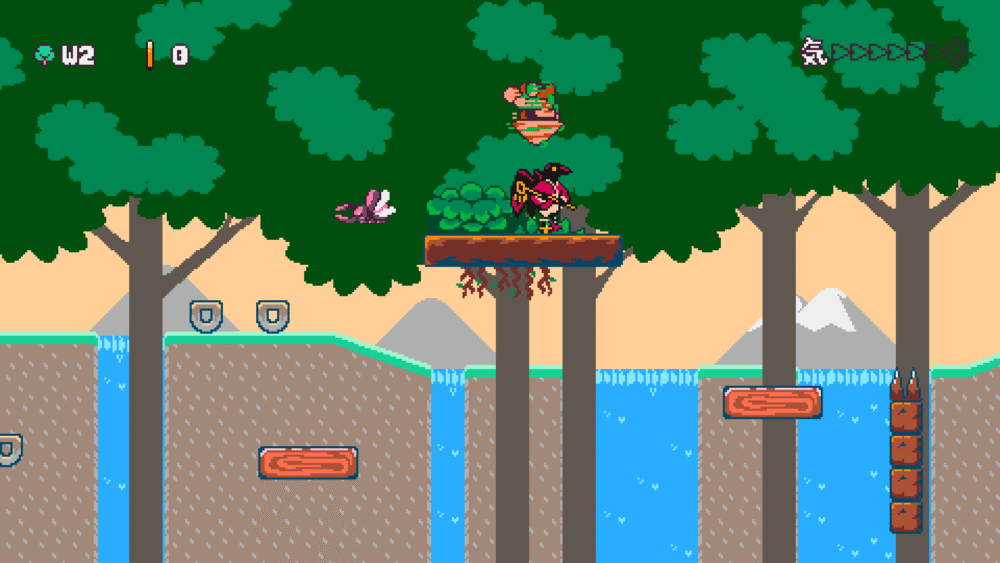
Can you share a defining moment when representation (or lack thereof) shifted your experience in developing games?
Eniko: A big one for me personally was many years ago with a game we’d created called MidBoss, which is a turn-based roguelike. I designed the main character in that game, the imp, to be genderless, but I saw a thread on social media from someone who played it and who said that they felt the game was about the trans experience. The details are a little hazy now since it’s been going on a decade ago, but to them, the imp being kind of in between genders or non-binary and able to possess other creatures, or transform into other things, felt very trans to them. And I could tell that was important to them. I think that’s when I decided to go harder on incorporating various queer experiences in our games.
Cade: I always knew there were a few and far in-between cases of representation in games, before recent years, but I wasn’t SHOOK until I accidentally proposed to a same sex partner in Skyrim. Though the game isn’t overly queer in any other way, I was so taken aback that such a huge AAA game would add this option in, and I felt sort of “seen” in games for the first time. Sometimes it’s just having the option to see your own sort of life reflected in a game that makes all the difference. That was years ago.
Fortunately, times are changing, and now you can find hundreds of new queer games being developed and released every year. We just need to keep the momentum up, because representation truly saves lives.

What challenges and triumphs did you and your team encounter while developing Kitsune Tails?
Eniko: I think the biggest triumph is that we managed to create a game of this caliber at all, even though our team was largely a bunch of impoverished queer people. We didn’t have much in the way of funding to pull this off, and things got really scary near the end because we were pushing up against bouncing rent checks. Thankfully, our community had our backs and helped us so we could pull it over the finish line.
In terms of actual design, the biggest challenge was to make a game so obviously inspired by a beloved classic while also doing enough to make it our own. It’s tough to make something that’s both familiar and fresh, but I think we managed to pull it off.
Cade: As I was just leading the marketing, a lot of the challenges there were due to this being a “niche of a niche of a niche” sort of game. It’s a retro platformer, it’s queer, it’s pixel art-based – those three things have an audience, but they’re not all large audiences, and so my challenge was to get it as much spotlight and visibility as possible, while trying to find a way to best appeal to gaymers who might like it.
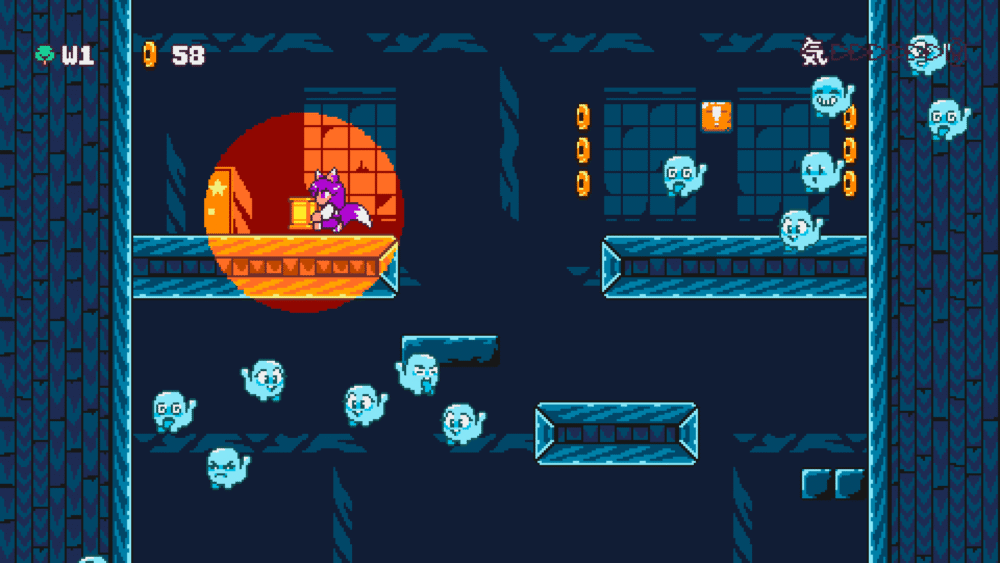
What’s something you wanted audiences to take away from Kitsune Tails?
Eniko: We really just wanted people to have something to play that would make them happy, and judging by this award and the messages we’ve received from fans of the game, we’ve succeeded! We did have a secondary agenda, which was to make Kitsune Tails a game that parents could feel comfortable playing with their kids, or aunts and uncles playing with their nieces and nephews, and hopefully send the message to the next generation that it’s okay to be who you are. Like Yumi, Yuzu’s mom says in-game: “Being your truest self is the only way to be a person’s friend. And if they don’t understand that, then they weren’t as good friends as you thought.”
Cade: I would love it if people play, love, and finish the game and leave with a feeling of full warmth in their hearts and all the warm fuzzies they can handle.
What advice would you give to other underrepresented individuals aiming to break into the games industry?
Eniko: It’s tough out there right now in terms of funding, so I think the best advice I have is to find a team of like-minded people that you have good chemistry with, and be mindful of your scope. We thought we’d scoped pretty well for Kitsune Tails, but it still took years to develop! But if you keep your scope tightly under control and you have a solid team, then you might just be able to do amazing things even on a shoestring budget.
Cade: Just dive in. The good people out there will take you as you are and welcome you for your talents and merits.
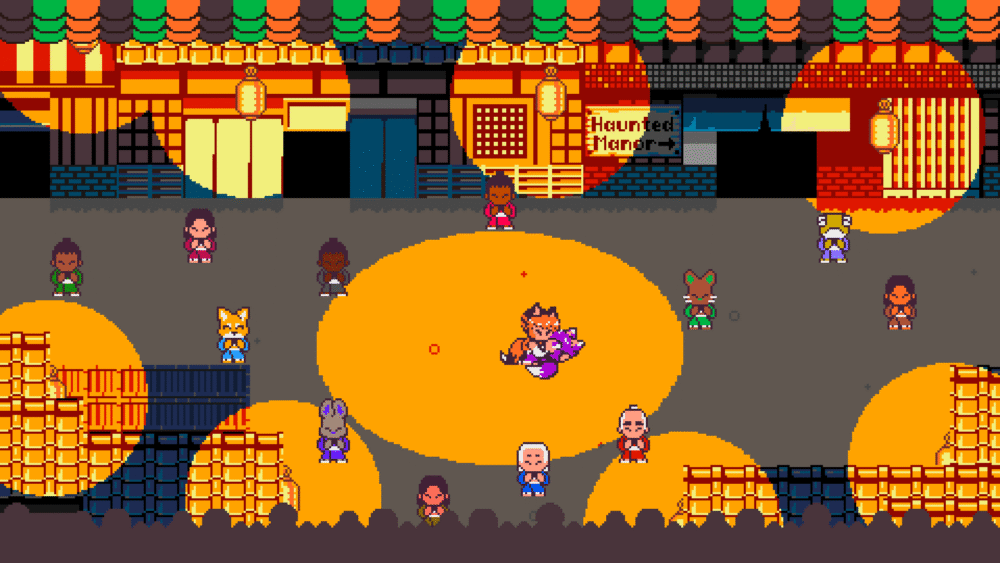
Looking ahead, what’s your hope for the games industry, particularly with indie games?
Eniko: To be honest, my biggest hope is that storefronts will reduce the amount of revenue they take from small indie games. The less money you make, the harder that percentage hits because that’s often money you need to recoup costs and pay back debts. For a lot of small indie games, what these stores make is peanuts either way, so giving the smallest indies a break in that way would open up a whole new world of commercially viable experiences that are smaller, more intimate, and more niche. The way things are now, a lot of indies publish their first game, and that cut ensures they’ll never publish a second, and that’s a tragedy, especially since this hits underfunded marginalized creators the hardest.
Cade: I hope that indies can continue to lead the charge, sharing experiences that “big” games can’t or won’t. Indies are truly the leading edge of gaming.
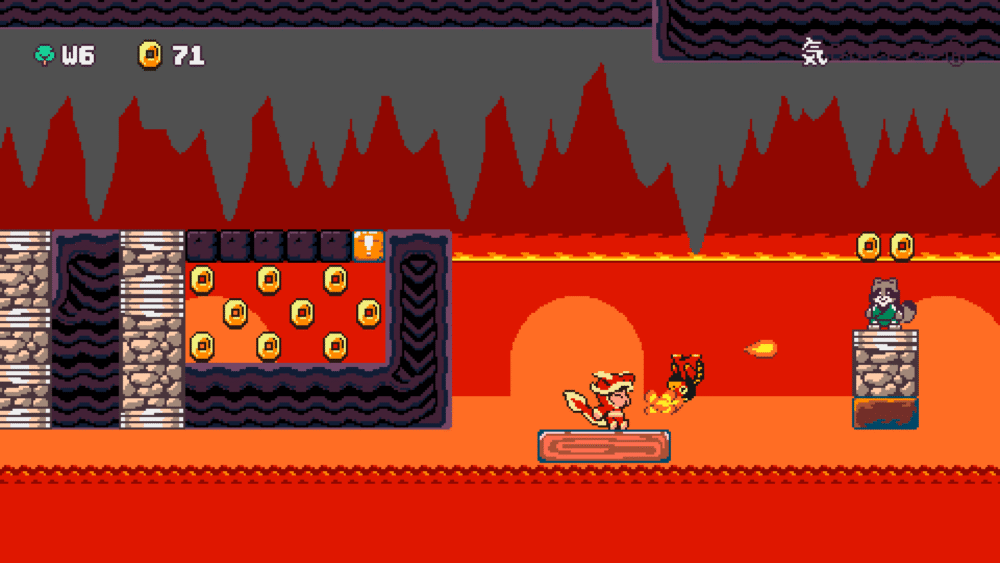
What’s next for the team? Any highlights coming up?
Eniko: We’ve got some pretty special stuff coming up for Kitsune Tails, and maybe beyond! I don’t want to reveal too much, but the team has been busy working on brand new content, and there are also features coming down the pipe that we’d promised, like a new game, so stay tuned!
Cade: Nothing I can share at the moment!
How do people keep up with you?
Eniko: On Bluesky, you can find me personally at eniko.bsky.social and our studio at kitsunegames.bsky.social, and we’re also on fediverse/Mastodon, at @eniko@mastodon.gamedev.place and @kitsunegames@mastodon.social.
Cade: @CadeRageous on most platforms, though I find myself engaging on social media less and less and mostly just lurk these days.
I want to thank Eniko and Cade for their time and for giving us a glimpse into the indie developer side of game creation. Kitsune Tails was one of my indie highlights of 2024, and their win of Best LGBTQ+ Indie Game was very deserved.
During my first playthrough of Kitsune Tails, I went through a range of emotions, so the developer’s intent made an impact on me. 2025 has been an incredibly challenging year, as people’s lives, safety, and rights are being taken away by those in power around the world. Many are choosing to fight back, along with wrestling with the reality of the dangers faced from the rollback of protections.
The way people protest can often come in the form of art, and video games are a part of that resistance. Showcasing queer joy, queer stories created by queer developers and queer led studios is resistance and show our stories and history will never be erased. Thank you so much, Eniko and Cade, for your time, and congrats on your win!





